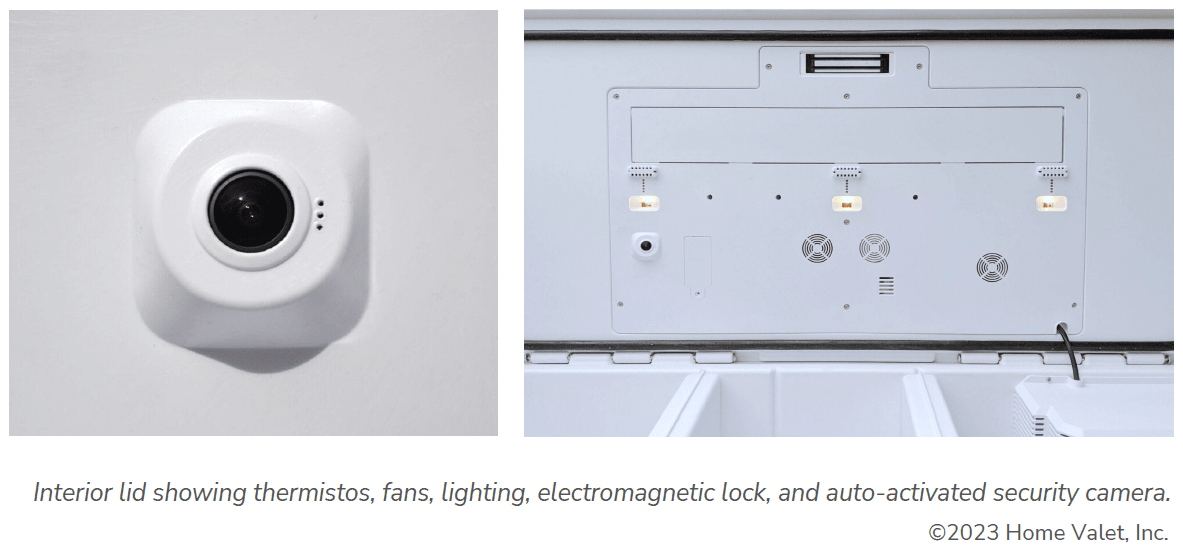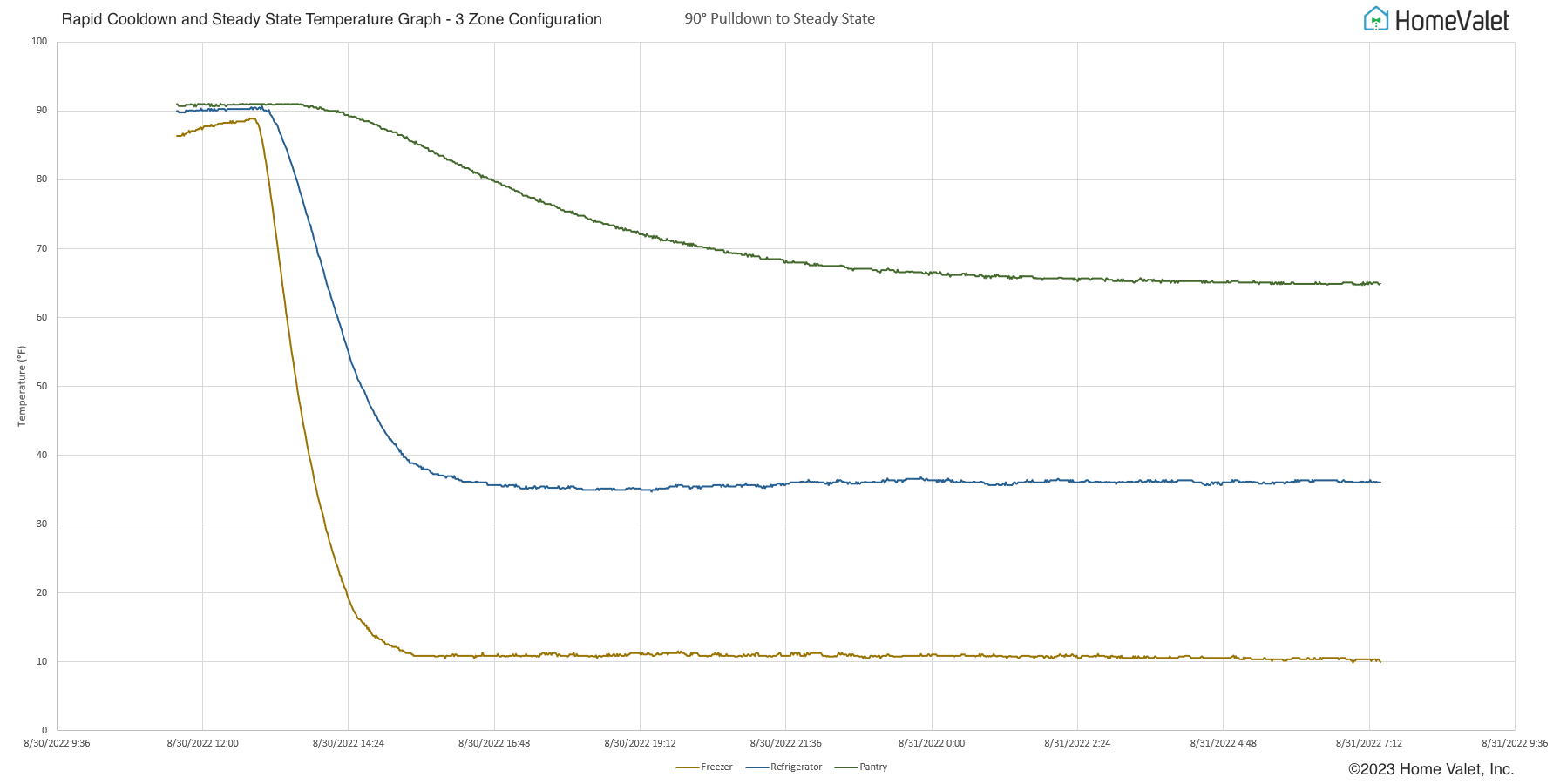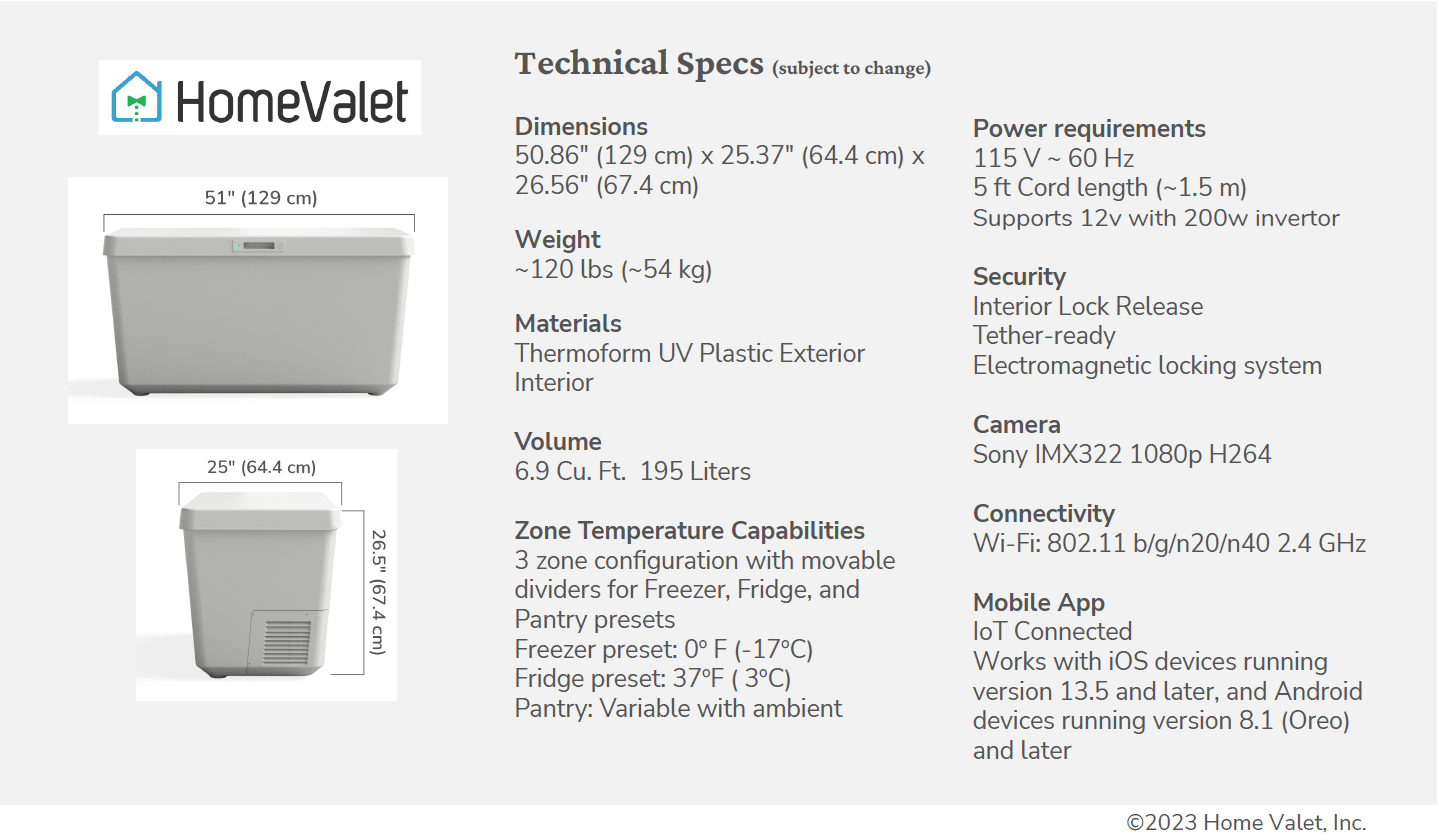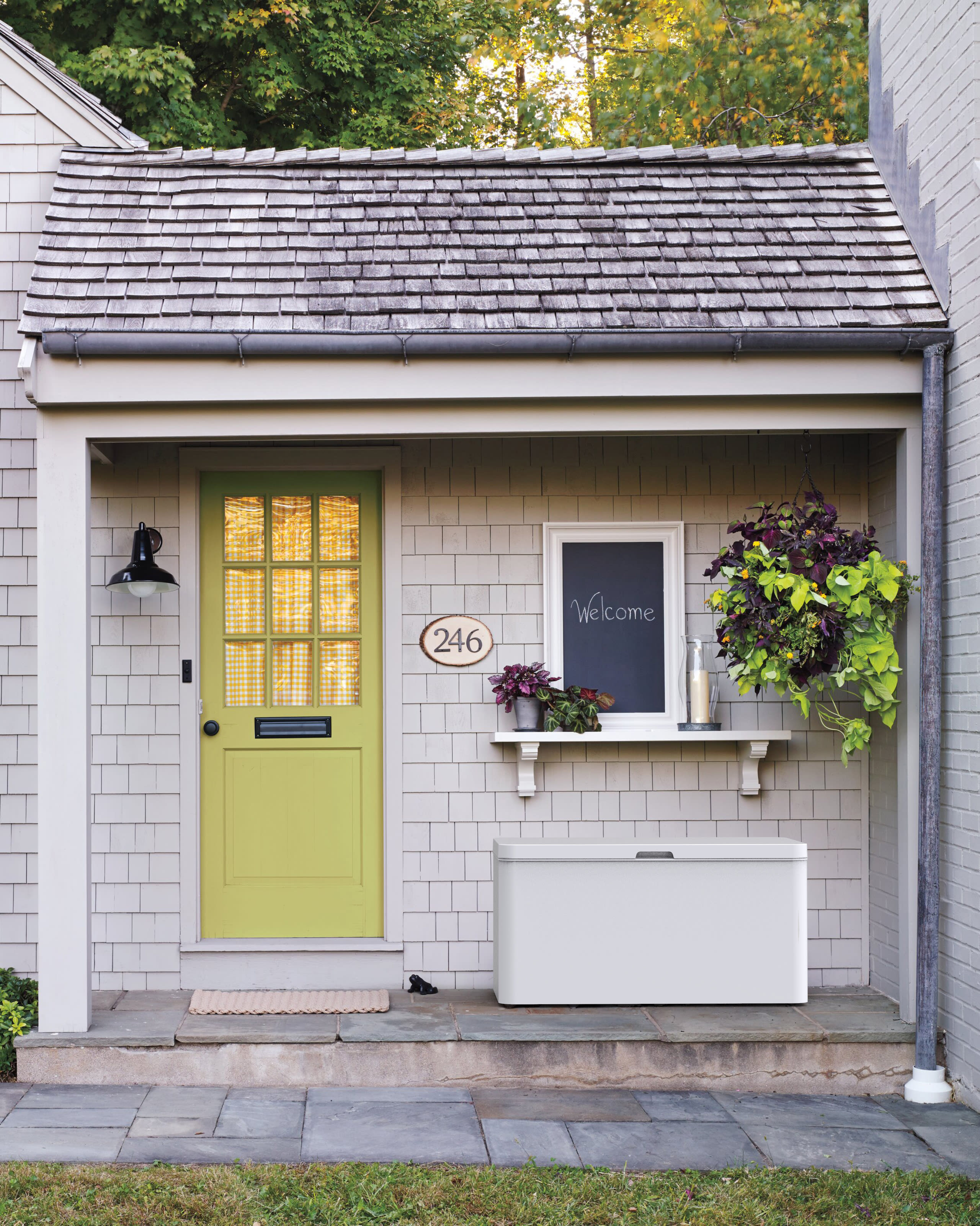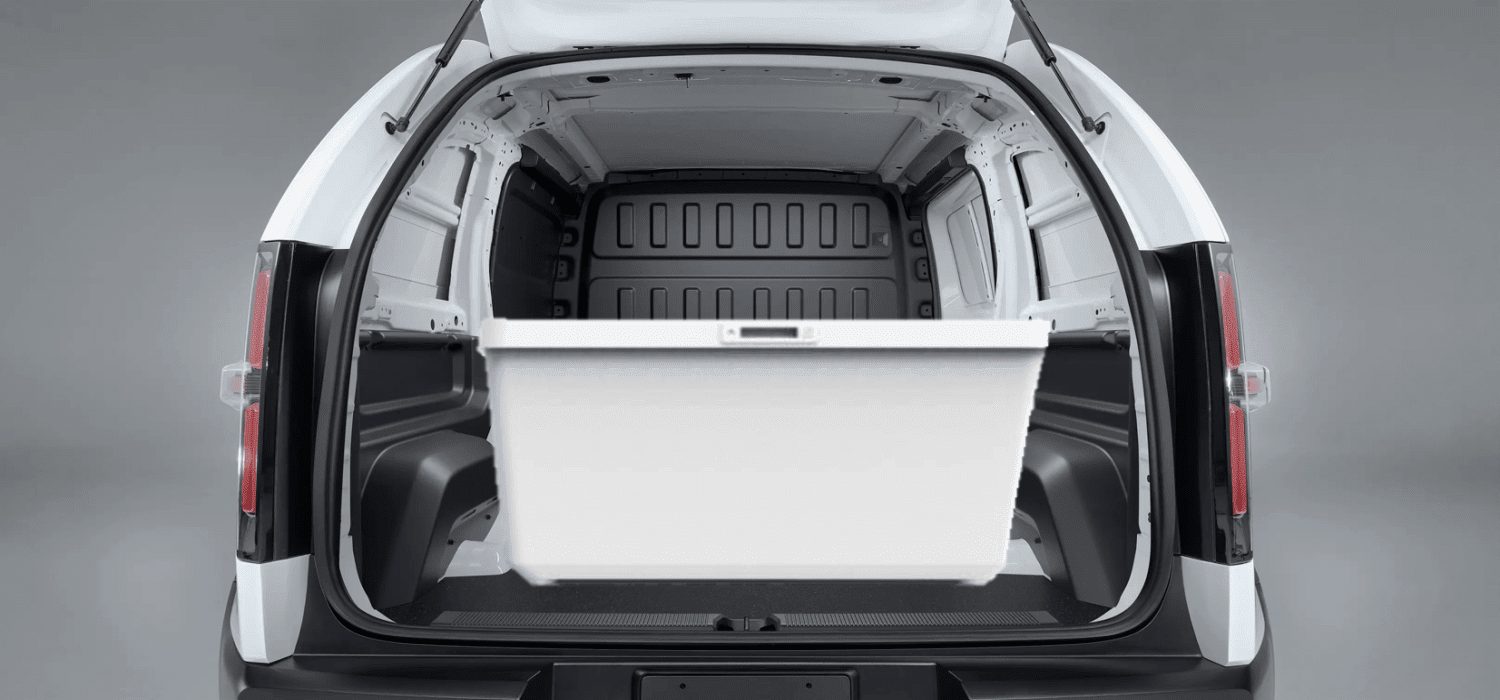
HomeValet, Inc. CEO John Simms announced today a food-safety compliance and risk management system for food delivery from Store-to-Door. HomeValet’s new product and services offering follows the FDA’s December guidance addressing today’s unregulated “Wild West” of home food delivery, which lacks cold-chain compliant refrigeration, food temperature monitoring, and transparent compliance verification.
HomeValet’s system is comprised of a locked, refrigerated SmartBox monitoring temperature in freezer, refrigerator, and pantry compartments, controlling access and custody, reporting temperature and video, and streaming data to a SaaS cloud-based platform which records to a secure, encrypted database of record. HomeValet’s compliance software is SOC2 certified; the SmartBox is UL and Intertek safety approved. HomeValet’s integrated, end-to-end solution protects food in staging, transport and home receipt and is accessible by API’s and smart phone app.
“The Butterfly Effect of the FDA’s December release of guidance targeting the unsafe home delivery of groceries and prepared food forecasts a hurricane of new rules,” HomeValet CEO John Simms predicts. “The FDA placed a spotlight on the risk to the health and safety of American families from unsafe home delivery of perishable foods.”
The recent explosive growth in online shopping and home food delivery and the ad hoc delivery network, which emerged in response to the financial opportunity, endangers consumers who may become sick from food tainted en route from store-to-door, according to the FDA’s Conference on Food Protection. A study, presented at the FDA conference, reported nearly fifty percent of home-delivered dinners were not at safe temperatures upon receipt by consumers and food products are likely left outside on the porch.
The FDA’s “Foundational concept” is to apply to Direct-To-Consumer (DTC) and Third-Party Delivered (TPD) food organizations the same “state, territorial and local regulations modeled after the FDA model Food Code require(ing) retail food establishments to follow practices that prevent food from becoming adulterated or unsafe.”
American grocers and restaurateurs will agree this is a big deal for two reasons:
- a food safety plan meeting scientific standards prevents consumers from getting sick
- the process is costly, time-consuming, and continuous, and requires scientific studies using the company’s products and packaging.
“Grocers, personal shoppers, home delivery companies, and 1099 gig drivers are certain to be disrupted by a ‘storm’ of new safety rules and changed economics of home delivery,” Simms added.
The journey of perishable food from the store to the door of a home is perilous. Just as grocers and restaurants are required to employ safe practices for food storage, packaging, preparation, and transport, companies and independent contractors who deliver food to homes should employ the same or similar practices. That means DTC and TPD parties must have a food safety plan (meeting food safety goals of time/temperature), validate it works, and verify it in the field (testing and monitoring).
“Perishable food spoils on the porch just as easily as it does in a delivery vehicle, and consumers can get just as sick,” Simms commented. The inadequacy of delivery endpoint receipt at the door or on the porch is not directly addressed in the FDA’s guidance, although it is integral to DTC and TPD commerce. To be safe to eat, frozen and refrigerated food must meet scientific FDA cold-chain standards during the entire journey, in the store, in the car/van, and on the porch after delivery, according to FDA food safety standards.
“Many DTC and TPD companies may think their liability for food spoiling is extinguished after delivery when the customer “checks the box” requesting the items to be left on the porch. With the issuance of this guidance from the FDA on food safety, every DTC and TPD should be on notice that consumer delivery instructions and warnings may not relieve them of liability for food poisoning en route or even when food spoils on the porch after delivery,” Simms stated.
“This FDA food safety guidance could well become a big hammer for sickened consumers, and everyone in the store-to-door delivery chain may become a nail subject to financial liability. Just imagine a plaintiff’s attorney legal argument of negligence for delivery of tainted food against a big online food company defendant based on non-compliance with this FDA food safety guidance. Equally disruptive is the prospect of 1099 independent contractors on whom the industry rely refusing to take gigs to deliver groceries and prepared foods for fear of becoming subject to liability for tainted food,” Simms concludes.
Home Valet, Inc. provides compliance and risk management software and hardware systems for Food Safety and Delivery from Store-to-Door and at-Home After Delivery: planning, verification, real-time live-stream Cold-Chain monitoring en route and at home, refrigeration, delivery tracking, chain of custody, logging FDA compliant data of record, evidentiary models, and seller, courier, and customer notifications and alerts. (UL, Intertek, and SOC2 certified) To learn more visit HomeValet.co or follow HomeValet on Facebook, Instagram, LinkedIn and Twitter.
